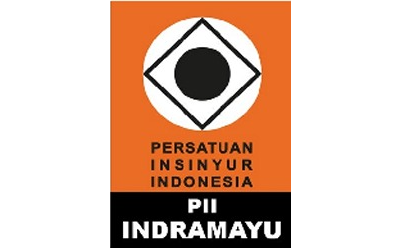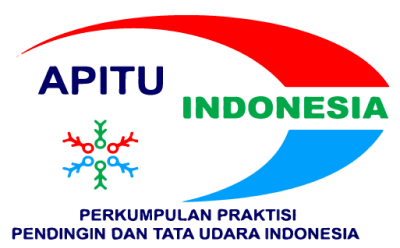ANALISIS SENTIMEN PADA TWEET TERKAIT VAKSIN COVID-19 MENGGUNAKAN METODE SUPPORT VECTOR MACHINE
Abstract
Covid-19 is a disease that has been declared a global pandemic since March 2020. One of the challenges in dealing with the current Covid-19 pandemic is the widespread doubts about the use of vaccines, even though vaccination is one of the most successful ways to deal with infectious disease outbreaks. Vaccine hesitancy can be observed, among others, from public sentiment or perception on social media, one of them is Twitter. The existence of social media can affect the absorption of information received by a person, in this case social media is also a medium for anti-vaccine propaganda which can result in a decrease in public confidence in the Covid-19 vaccine. This study aims to develop a classification model using the Support Vector Machine (SVM) method for sentiment analysis of Tweet related to the Covid-19 vaccine. Several previous studies have conducted sentiment analysis related to Covid-19, but this research specifically conducts sentiment analysis on the topic of the Covid-19 vaccine so that data preparation and model configuration will be different. This study also uses the Design Science Research Methodology (DSRM) for research as a whole before focusing on the use of the SVM method. The results of the study consist of an algorithm for creating data sets and a classification model for sentiment analysis that can be used to determine public perceptions of the issue of Covid-19 vaccination. This study also compares the use of unigram and bigram tokenization. Based on the results obtained, the average value of each aspect of the evaluation measurement is higher when the bigram tokenization is used. Although higher, the value obtained has an insignificant difference in the range of 0.6% - 0.7%. In the evaluation results using unigram and bigram tokenization, the highest scores for all aspects of measurement, namely accuracy, recall, f-measure, and precision were 84%.
Full Text:
PDFReferences
Abirami, A. M., & Gayathri, V. 2017. A survey on sentiment analysis methods and approach. In 2016 Eighth International Conference on Advanced Computing (ICoAC) (pp. 72-76). IEEE.
Ahmad, M., Aftab, S., & Ali, I. 2017. Sentiment analysis of tweets using SVM. International Journal of Computer Applications, 177(5), 25-29.
Awad M., Khanna R. 2015. Machine Learning. In: Efficient Learning Machines. Apress, Berkeley, CA.
Baziotis, C., Pelekis, N., & Doulkeridis, C. 2017. Datastories at semeval-2017 task 4: Deep lstm with attention for message-level and topic-based sentiment analysis. In Proceedings of the 11th international workshop on semantic evaluation (SemEval-2017) (pp. 747-754).
Boon-Itt, S., & Skunkan, Y. 2020. Public perception of the COVID-19 pandemic on Twitter: sentiment analysis and topic modeling study. JMIR Public Health and Surveillance, 6(4), e21978.
Buntoro, G. A. 2016. Analisis Sentimen Hatespeech Pada Twitter Dengan Metode Naive Bayes Classifier Dan Support Vector Machine. Jurnal Dinamika Informatika, 5(2).
Buntoro, G. A. 2017. Analisis Sentimen Calon Gubernur DKI Jakarta 2017 Di Twitter. INTEGER: Journal of Information Technology, 2(1).
Chandrasekaran, R., Mehta, V., Valkunde, T., & Moustakas, E. 2020. Topics, Trends, and Sentiments of Tweets About the COVID-19 Pandemic: Temporal Infoveillance Study. Journal of medical Internet research, 22(10), e22624.
Cortes, C., & Vapnik, V. 1995. Support vector machine. Machine learning, 20(3), 273-297. Kluwer Academic Publishers, Boston.
Hadna, N. M. S., Santosa, P. I., & Winarno, W. W. 2016. Studi literatur tentang perbandingan metode untuk proses analisis sentimen di Twitter. Semin. Nas. Teknol. Inf. dan Komun, 2016, 57-64.
Jianqiang, Z., & Xiaolin, G. 2017. Comparison research on text pre-processing methods on twitter sentiment analysis. IEEE Access, 5, 2870-2879.
Kolchyna, O., Souza, T. T., Treleaven, P., & Aste, T. 2015. Twitter sentiment analysis: Lexicon method, machine learning method and their combination. arXiv preprint arXiv:1507.00955.
Lopez, C. E., & Gallemore, C. 2020. An Augmented Multilingual Twitter Dataset for Studying the COVID-19 Infodemic.
Lopez, C. E., Vasu, M., & Gallemore, C. 2020. Understanding the perception of COVID-19 policies by mining a multilanguage Twitter dataset. arXiv preprint arXiv:2003.10359.
Nasim, Z., Rajput, Q., & Haider, S. 2017. Sentiment analysis of student feedback using machine learning and lexicon based approaches. International Conference on Research and Innovation in Information Systems (ICRIIS) 2017.
Novantirani, A., Sabariah, M. K., & Effendy, V. 2015. Analisis Sentimen pada Twitter untuk Mengenai Penggunaan Transportasi Umum Darat Dalam Kota dengan Metode Support Vector Machine. eProceedings of Engineering, 2(1).
Ordun, C., Purushotham, S., & Raff, E. 2020. Exploratory analysis of covid-19 tweets using topic modeling, umap, and digraphs. arXiv preprint arXiv:2005.03082.
Pedregosa, F., Varoquaux, G., Gramfort, A., Michel, V., Thirion, B., Grisel, O., ... & Duchesnay, E. 2011. Scikit-learn: Machine learning in Python. the Journal of machine Learning research, 12, 2825-2830.
Peffers, K., Tuunanen, T., Rothenberger, M. A., & Chatterjee, S. 2007. A Design Science Research Methodology for Information Systems Research. Journal of Management Information Systems, 24(3), 45–77. doi:10.2753/mis0742-1222240302
Puri, N., Coomes, E. A., Haghbayan, H., & Gunaratne, K. 2020. Social media and vaccine hesitancy: new updates for the era of COVID-19 and globalized infectious diseases. Human Vaccines & Immunotherapeutics, 1-8.
Putranti, N. D., & Winarko, E. 2014. Analisis sentimen twitter untuk teks berbahasa Indonesia dengan maximum entropy dan support vector machine. IJCCS (Indonesian Journal of Computing and Cybernetics Systems), 8(1), 91-100.
Rofiqoh, U., Perdana, R. S., & Fauzi, M. A. 2017. Analisis sentimen tingkat kepuasan pengguna penyedia layanan telekomunikasi seluler indonesia pada twitter dengan metode Support Vector Machine dan Lexicon Based Features. Jurnal Pengembangan Teknologi Informasi dan Ilmu Komputer e-ISSN, 2548, 964X.
World Health Organization, 11 Maret 2020. Diakses dari https://www.who.int/director-general/
speeches/detail/who-director-general-s-opening-remarks-at-the-media-briefing-on-covid-19---11-march-2020, pada 23 September 2021
World Health Organization, 18 Juni 2021. Diakses dari https://www.who.int/publications/m/
item/draft-landscape-of-covid-19-candidate-vaccines, pada 22 Juni 2021.
DOI: https://doi.org/10.31884/jtt.v7i2.349
Refbacks
- There are currently no refbacks.
Copyright (c) 2021 JTT (Jurnal Teknologi Terapan)

This work is licensed under a Creative Commons Attribution-NonCommercial-NoDerivatives 4.0 International License.
 Creative Common Attribution-ShareAlike 4.0 International (CC BY-SA 4.0)
Creative Common Attribution-ShareAlike 4.0 International (CC BY-SA 4.0)













